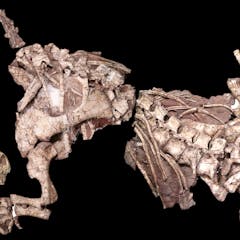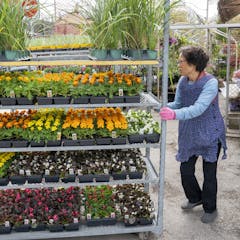
Articles on Indigenous knowledge
Displaying 1 - 20 of 118 articles

In African coastal communities, traditional knowledge helps residents to anticipate and prepare for potential flooding events.

Researchers, managers and Traditional Owners are joining forces to understand and combat climate threats to Australia’s many unique World Heritage sites.

Some time between 1100 and 1700 AD, a Massospondylus bone was discovered and carried to a rock shelter in Lesotho.

The African Food Systems Transformation Collective says COP28 must enable transition from fossil-fuelled food systems and leverage indigenous knowledge so that all can sustainably access good food.

INTERwoven TEXTures is a breakthrough exhibition. Here’s a review of it.

Digitalisation offers a way to preserve indigenous knowledge of agricultural practices and connect new generations of farmers to knowledge and wisdom from the past.

Indigenous knowledge of spiritual protection could help fight crime.

To the ǀXam and San people, being in the world as a person includes “the sky’s things” - an understanding of and deep connection with the cosmos.

Deserts in Australia burn – and burn big – if fuel is left to build up. But this year, Indigenous rangers across the deserts have burned huge tracts early to make Country healthier.

Many ‘myths’ are authentic memories of human pasts, told by people who passed down precise accounts of their history.

In-person collaboration between Indigenous communities has been aided by information technologies like Zoom. However, recent attempts to mine personal data raise concerns about data ownership.

Experiments show honey from Australian desert ants has potent antimicrobial power.

To effectively address climate hazards like wildfire, we must consider the diverse experiences of people, account for longstanding institutions and create processes that empower local people.

The Darwin woodland is home to endangered species and important for the Larrakia people. The development approval requires habitat offsets – yet the minister herself has publicly doubted offsets work.

The First Inventors documentary series is appearing on our screens at a time when Australia engages in some big national conversations about voice, truth, and treaty.

As we approach the start of gardening season, it’s a good time to ask some questions about what to plant and who gets to plant.

In a new edition of his classic work, Suzuki suggests the major crises we face – pandemics, climate disruption, biodiversity loss – all have roots in our lack of recognition of our place in nature.

Canada’s commitment to halt biodiversity loss can only be realized by weaving together Indigenous and non-Indigenous knowledge.

Strange barren patches in the Australian outback have been long-studied by scientists – but until recently, nobody had consulted the Aboriginal people who live among them.

One key difference between kaitiakitanga and conservation is that the former considers people as part of the environment, while the latter manages nature as if people were separate from it.
